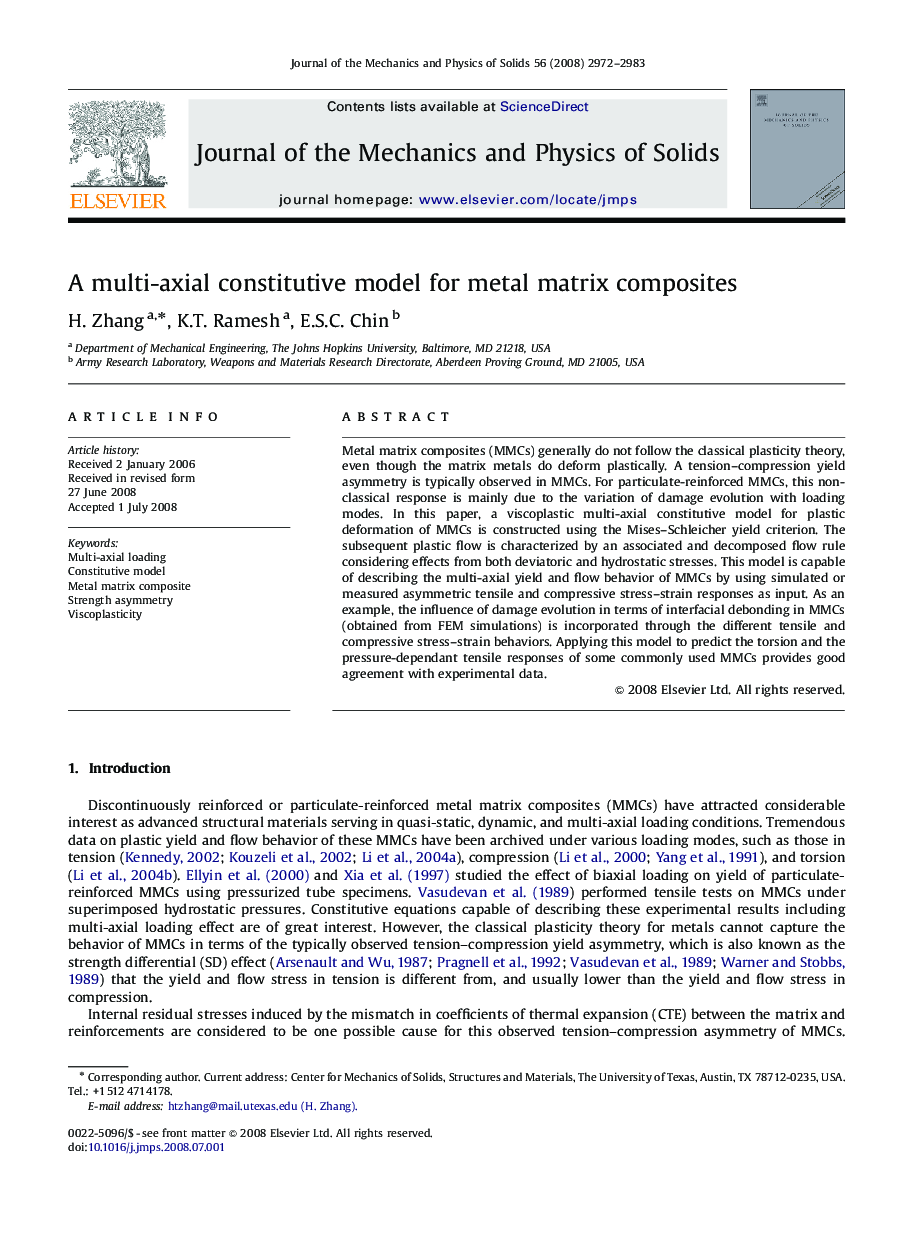| Article ID | Journal | Published Year | Pages | File Type |
|---|---|---|---|---|
| 796889 | Journal of the Mechanics and Physics of Solids | 2008 | 12 Pages |
Metal matrix composites (MMCs) generally do not follow the classical plasticity theory, even though the matrix metals do deform plastically. A tension–compression yield asymmetry is typically observed in MMCs. For particulate-reinforced MMCs, this non-classical response is mainly due to the variation of damage evolution with loading modes. In this paper, a viscoplastic multi-axial constitutive model for plastic deformation of MMCs is constructed using the Mises–Schleicher yield criterion. The subsequent plastic flow is characterized by an associated and decomposed flow rule considering effects from both deviatoric and hydrostatic stresses. This model is capable of describing the multi-axial yield and flow behavior of MMCs by using simulated or measured asymmetric tensile and compressive stress–strain responses as input. As an example, the influence of damage evolution in terms of interfacial debonding in MMCs (obtained from FEM simulations) is incorporated through the different tensile and compressive stress–strain behaviors. Applying this model to predict the torsion and the pressure-dependant tensile responses of some commonly used MMCs provides good agreement with experimental data.
